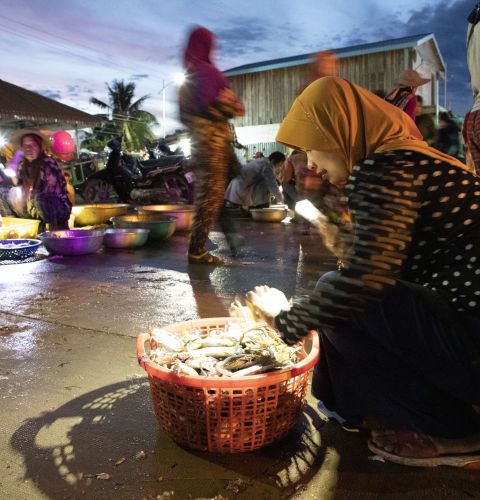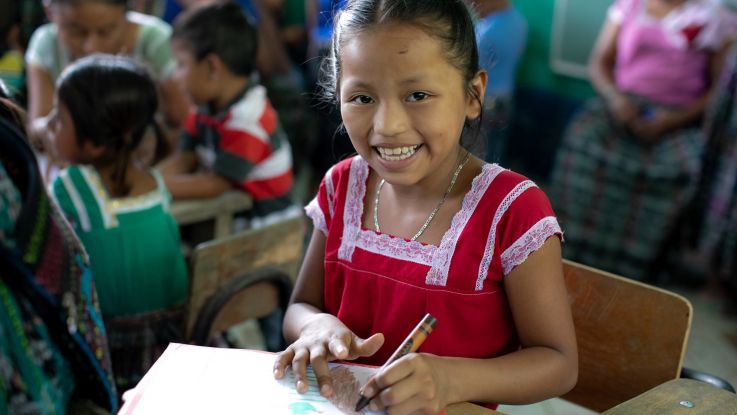Climate change and sustainable fishing
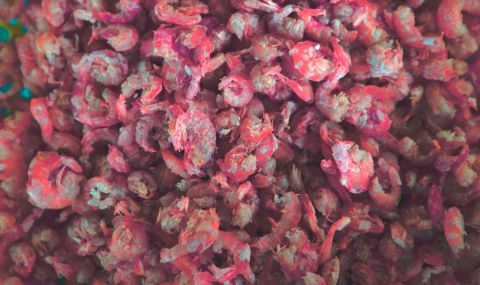
In Kampot, Cambodia fishing communities build mangroves that attract crabs, fishes and shrimps.
The impact of industrial fishing
High global demand for fish has led to poor practices in fishing that are destroying marine life and habitats.
- Industrial fishing that uses large trawlers and cutting-edge technology has made fishing more efficient to meet the demands of increased consumption. This has increased overfishing - catching fish faster than fish can reproduce or replenish, reducing the number of fish species in our oceans.
- As fish are unable to reproduce fast enough to match the growing demand, ships sail further, sometimes illegally into other territories causing conflict.
- Loss of marine life locally affects the food security and livelihoods of poorer, traditional fisherfolk especially in Africa, Latin America, and south and north-east Asia. More than 3 billion people in the world depend on marine life for their livelihoods4 .
- Industrial fishing also uses practices that adversely affect bio-marine life. Destructive methods like longline fishing and bottom trawling where a large net is dragged across the ocean floor to capture all kinds of fish also destroy reefs, seabeds and other plants and organisms.
- Bad practices such as these also increase the number of by-catches - sea life like turtles and seabirds that are not needed and are usually considered collateral in large-scale fishing.
- Aquafarms breed fish often in confined spaces and use of antibiotics and pesticides can contaminate surrounding water and land and affect wild fish populations. It is also contributing to a loss of natural mangroves.
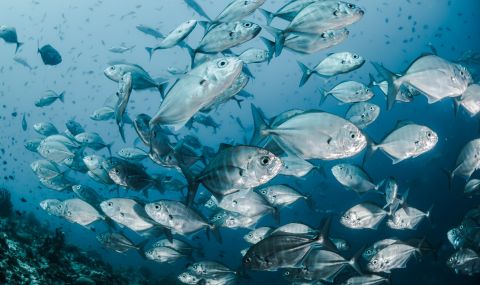
Overfishing and climate change are affecting the number and type of fish in the ocean.
The impact of fishing and climate change on women and girls
While actual numbers of how many women fish and how much they catch5 are not available, according to the Food and Agricultural Organization of UN (FAO) and the World Bank, globally one in two seafood industry workers is a woman.6
On average, 47% of the 120 million people who work in fisheries, harvesting, fish processing and fish trading sectors are women.7 Women constitute a high proportion of workers in subsistence fishing, processing, fresh fish trading and retailing, in environmental organisations, and in administrative work. However, there are very few women in industrial fishing and in leadership positions.8
Women tend to be engaged in small fisheries as opposed to large-scale, industrial fisheries as these are more compatible with their family obligations and demand less in terms of capital.
Women and girls from poorer coastal regions are therefore more affected by the consequences of industrial overfishing9 and climate change as listed above.
As the Covid-19 pandemic still spreads around the world, small fishing boats, fish markets and female workers are among the worst affected by the economic impact of the coronavirus crisis on the world’s fisheries.10
Fish is not just a vital food source for women and their families - it contributes to 50% of total animal protein intake in coastal countries in the global south11 - but it plays an important part in the fabric of the coastal culture.
The role of fishing and its associated work helps fishing women and their communities maintain a sense of place, identity and pride in their work and life12 .
When fish becomes scarce, families have to fish harder and farther into different territories which takes longer and requires more labour. Children, especially girls, miss classes or drop out of school to help their families fish or take up a larger share of care and household responsibilities while families including mothers go out to fish.13
ActionAid's work supporting responsible fishing
ActionAid works with fishing communities, especially women and girls who have been affected by climate change and exploitative fishing practices through training, support and advocacy.
- When fishing becomes unsustainable as a food and income source, ActionAid helps communities pivot to alternative forms of subsistence and income avenues such as promoting vegetable growth or other types of farming and trade.
- To promote sustainable fishing practices, ActionAid provides training, improved equipment and other resources so that fishing communities can advance their skills while protecting the environment and marine habitats.
- ActionAid also works with local partners to prevent the degradation of local marine ecosystems such as mangroves.
- ActionAid advocates for the rights of traditional fisherwomen to harvest and manage their local fish stocks and empowers women to take leadership roles in the community and challenge the exploitation of their threatened coastland.
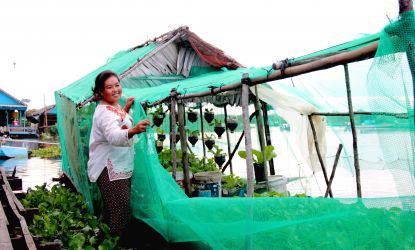
31-year-old Sreymom started growing vegetables when fishing became unsustainable.
Ratana/ActionAid
Making the switch: From fishing to vegetable growing
31-year-old Sreymom was part of a fishing community in Pursat, Cambodia until fish became scarce and fishing no longer provided adequate nutrition or income for the local families.
With the help of ActionAid the community set up a farming group and helped people move to grow vegetables as an alternative source of food and income.
Because of a lack of land, Sreymom and other fisherwomen started growing vegetables on their rafts. These organic vegetable patches were grown without chemicals, helped reduce the costs of earning a living.
In the morning after cleaning house, washing dishes and preparing our beds, I go to my vegetable-rafts in front of my house to water and get rid of grass from vegetables. I sow the seeds of salad, white-cabbage, cucumber and tomato."
Footnotes
- 1https://www.iucn.org/resources/issues-briefs/ocean-warming
- 2https://www.oceanographicmagazine.com/news/mangrove-forests-flood-protection
- 3https://www.theguardian.com/environment/climate-consensus-97-per-cent/2017/feb/16/scientists-study-ocean-absorption-of-human-carbon-pollution
- 4https://www.un.org/sustainabledevelopment/oceans/
- 5https://oceana.org/blog/vital-invisible-how-subsistence-fisherwomen-around-world-feed-their-families
- 6http://www.fao.org/3/a-bc014e.pdf
- 7http://documents1.worldbank.org/curated/en/515701468152718292/pdf/664690ESW0P1210120HiddenHarvest0web.pdf
- 8http://www.fao.org/3/a-bc014e.pdf
- 9https://www.dw.com/en/the-women-left-to-face-climate-change-and-overfishing-alone/a-47709246
- 10https://www.theguardian.com/environment/2020/jun/08/small-boats-women-workers-hardest-hit-covid-19-fisheries-impact
- 11https://thefishsite.com/articles/fao-state-of-world-fisheries-aquaculture-report-fish-consumption
- 12https://www.sciencedirect.com/science/article/pii/S2212682116300336
- 13https://practiceconnect.azimpremjiuniversity.edu.in/the-education-of-children-from-fisher-communities-lessons-from-indonesia-india-and-brazil/
Page updated 6 February 2025
